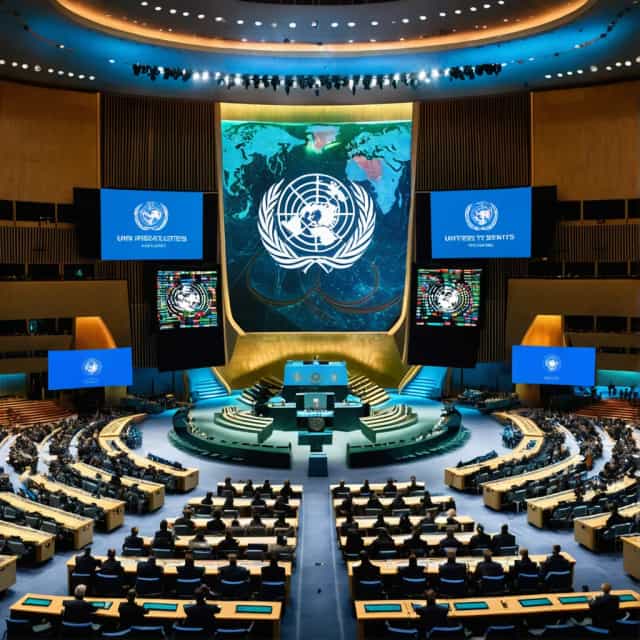
출처: Block Media
Trump Administration Unveils $100,000 Annual Fee on H-1B Visas in Landmark Immigration Policy Shift
The Trump administration has introduced a sweeping immigration policy, imposing a $100,000 annual fee (approximately 140 million KRW) on H-1B visas—a critical employment visa for skilled professionals in the United States. The White House framed this decision as part of a broader strategy to strengthen the American workforce by prioritizing domestic talent over foreign workers. Commerce Secretary Howard Lutnick stated, “Our focus should remain on hiring graduates of U.S. universities. It is essential to prevent foreign workers from displacing American citizens in the job market.”
Immediate Enforcement Sends Shockwaves Through Global Industry
The policy came into effect at midnight on October 20 (local time), leaving international corporations and H-1B visa holders scrambling to adjust. Tech giants including Microsoft and Amazon have reacted swiftly, cautioning current H-1B holders to abstain from international travel. Companies have also advised those currently abroad to return to the U.S. immediately in order to avoid additional costs.
The H-1B visa program, designed to attract professionals in specialized fields—particularly STEM (science, technology, engineering, and mathematics)—is capped at 85,000 visas annually, allocated via a lottery system. These visas allow an initial stay of three years, with options for extensions or pathways to permanent residency. Historically, costs associated with H-1B visas were relatively modest, capped at approximately $1,000 (1.4 million KRW) to cover registration and petition fees. However, the new annual fee could raise the total cost of a three-year visa to $300,000 (roughly 4 billion KRW), placing substantial financial strain on sponsoring employers.
Indian IT Industry Poised to Bear the Brunt
India’s IT sector, which relies heavily on H-1B visas, is expected to face significant challenges as a result of the policy change. Indian nationals made up 71% of approved H-1B applications in the past year, making them the most affected group. Nasscom, a leading association representing India’s IT industry, criticized the abrupt implementation timeline, stating, "The immediate application of these fees creates instability for both businesses and skilled professionals. These costs burden the industry further, complicating its operations and planning.”
Indian IT firms play a vital role in the U.S. economy, primarily through technology outsourcing contracts with American companies. The new financial demands are likely to force Indian firms to not only reevaluate their reliance on H-1B visas but also reconsider the viability of maintaining operations within the United States.
Potential Ripple Effects on U.S. Competitiveness
Analysts have raised alarms about the broader economic implications of the policy. While the added fees may provide initial revenue boosts, they could discourage businesses from hiring foreign talent altogether—prompting firms to offshore projects that may harm American technological innovation and competitiveness in the global market. Experts warn that the policy could stifle the U.S.'s ability to attract top talent in high-demand fields, forcing leading-edge companies to transfer jobs and valuable intellectual capital to other nations offering less restrictive environments.
“This decision risks creating a brain drain of global talent that would have otherwise contributed to America’s leadership in research and technological advancement,” said John Hamilton, an immigration policy analyst. He added that talent diversions could limit the country's ability to drive innovation in highly specialized industries, ultimately undermining its global influence.
Gold Card Initiative Sparks Controversy
Parallel to the H-1B visa fee hike, President Trump has launched the "Gold Card" initiative, enabling wealthy foreign nationals to secure permanent residency in the United States through a one-time payment of $1 million (approximately 1.4 billion KRW). Introduced via an executive order, this program is positioned as a tool to attract affluent investors and boost the U.S. economy.
However, the Gold Card program has drawn sharp criticism from opponents, who argue it may deepen economic inequality. Critics also question whether prioritizing wealth over skills in U.S. immigration policy sends the right message. “This approach raises moral and economic concerns,” said Lydia Green, an economist. “It benefits the ultra-rich while sidelining skilled professionals who could contribute far more to long-term growth.”
A New Era of U.S. Immigration Policy
The introduction of the $100,000 H-1B visa fee and the Gold Card program highlights the Trump administration’s aggressive push to reshape U.S. immigration policy. By prioritizing domestic hiring and investor-based residency, this suite of reforms signals a departure from traditional systems designed to attract skilled talent to the U.S.
As businesses, labor organizations, and policy analysts debate the merits and drawbacks of the reforms, one thing is clear—these measures have sparked wide-ranging implications for the business community, global talent mobility, and America’s standing in the increasingly competitive global tech and innovation economy. For now, companies, professionals, and stakeholders are left grappling with the new realities and uncertainties created by these groundbreaking policy shifts.










